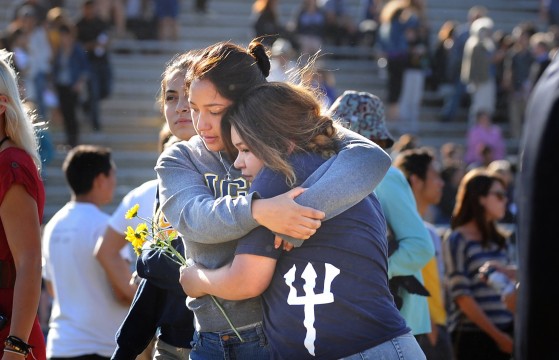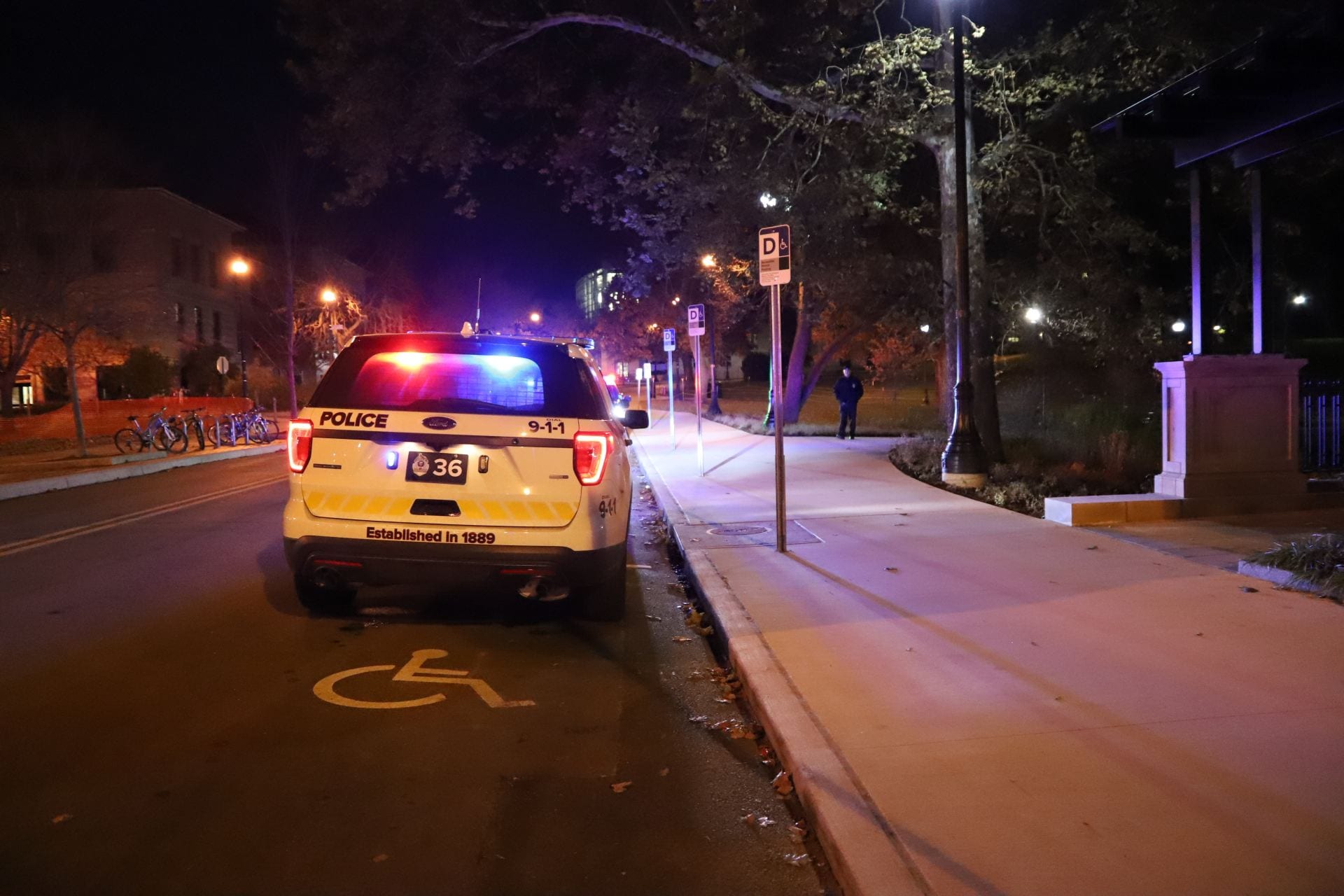
University of California Santa Barbara students hug May 27 after a memorial service for the students who died in a shooting May 23 in Isla Vista, Calif. In the wake of the shooting, many people took to Twitter to voice their opinions on unequal treatment of women with the hashtag #YesAllWomen.
Credit: Courtesy of MCT
After about an hour of scrolling through Twitter search results, I felt angry. I felt sad. Most of all, I felt empowered.
I was looking at tweets with the hashtag #YesAllWomen.
The hashtag was started after a shooting took place at University of California Santa Barbara on Friday that left seven people dead, including the suspected shooter, and several others injured. The suspect had posted a YouTube video about how he was a virgin and hated women for it, planning revenge via a mass killing.
The #YesAllWomen hashtag is a response to his frankly sexist attitude, allowing women to voice what they want to say about the way they think men treat women. As a result of that behavior, women have tweeted some of their experiences, including that they feel they can’t run after dark alone, they can’t wear tank tops to school because it distracts men and they can’t be furious or in tears without people assuming it’s hormonal.
I’ve experienced a lot of the things I see in these tweets, and it hasn’t just made me sad because it’s sad to think how this is a reality, it’s made me sad because I often didn’t realize I was in the right. And I really don’t want other young women to feel the same way.
Just a few nights ago, I went for a quick run at about 8:30 p.m., expecting to be home before it was fully dark. I misjudged it, though, and was jogging the last tenth of a mile or so beneath High Street’s streetlights when I passed a middle-aged man walking in the opposite direction. I paid him no mind but instantly I was more attentive, as I had been every time I passed a man during my run.
But this time, the man stopped the moment I was passing him and turned 180 degrees so that he seemed to be following me.
Needless to say, I was terrified. I ran a wide loop out of my way and had my phone ready to call for help until I convinced myself he either wasn’t following me anymore or never had been.
I shouldn’t have to feel like that.
I shouldn’t have to feel like I’m either being too cautious or not cautious enough.
My misjudging the amount of time it would take the sun to set might have been a silly mistake, but it doesn’t mean I’m stupid. And it really shouldn’t be called a mistake at all — it shouldn’t be a problem.
That’s why #YesAllWomen is empowering though. I can scroll through the tweets and know I’m not alone. In fact, no woman, or man, who’s experienced this sort of anxiety is.
A hashtag, though, isn’t going to solve the issues being shared. It might bring attention and brief awareness, sure, and that’s amazing because awareness is a big stepping stone toward change. But the only way to eliminate these issues is to somehow fundamentally change the way women, and sometimes men, are viewed.
There will always be people in the world who are out to get others, whether they’re targeting men or women. In my opinion, it’s the well-meaning men who need guidance and awareness because they’re the ones who can be swayed. They’re the men who have often been treated as if they were entitled to women’s attention and respect. In a lot of ways, they just might not know better.
When I was talking to a friend about this commentary and what I thought about the hashtag, she brought up a great point that I think is an important one: Women have to continue to speak up and confront the problems, not just on Twitter, but out loud. Because what good does it do to passive aggressively tweet about something later when you could’ve called the offender out on it at the time and started a conversation about the broader problem?
Obviously in the case of an evening run, as in many other cases, a woman might not be safe to start that conversation. But in broad daylight or around friends and family, she’s not only entitled to start it — I could argue she’s obligated to.
After all, these problems are happening to all women. Journalists, actresses and students alike are all tweeting with the hashtag, because like it or not, every woman has had an experience like this.
Yes, all women.

